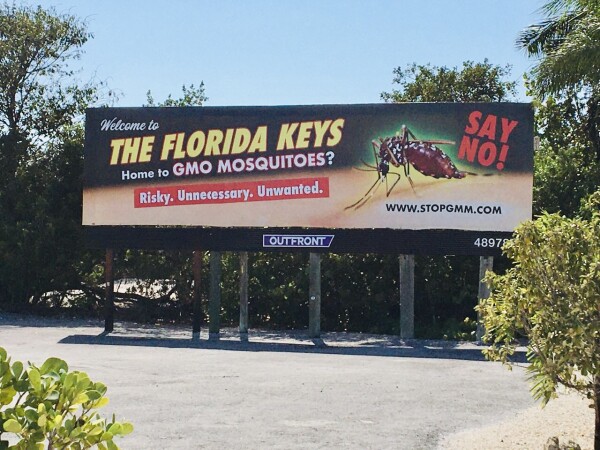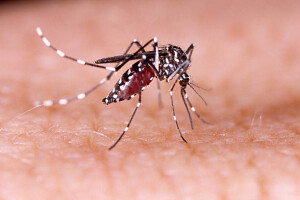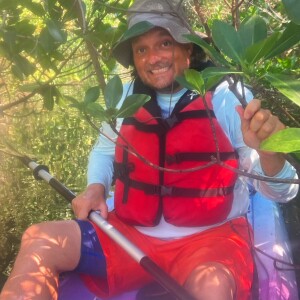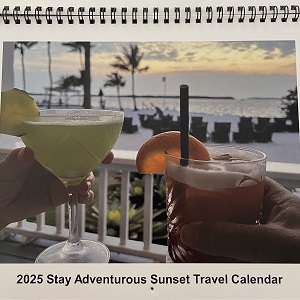A potential spring release of genetically modified mosquitos (GMMs) may alter the ecosystems and environment of the Florida Keys. It concerns me as a local, but you may also want to know as a visiting tourist too.
The more I travel, the more I learn to love and appreciate our planet. The many miracles of nature and the connection to the natural world continue to be reasons to explore. This love continues to grow with each adventure. And many such adventures are available here in the Florida Keys.
Living in the Florida Keys, environmental concerns became a daily discussion point. And there is a definite need to address them and balance our needs with our tourism economy. The recent selection of my home to the Fodors “No List” for 2020 rang many personal alarm bells, especially since our Reefs have been sickly for years. Couple that with hurricanes such as Irma and the recent pandemic and my fragile island home seems like it needs us all to became stewards for its coral reefs, mangroves, Florida Bay, and more.
One thing we don’t need now is an unknown like genetically modified mosquitoes.
A few weeks ago, I drafted this Op-Ed (below) to be published locally to further bring awareness to our fragile existence and the potential harms of such a release on ourselves at this time. I am publishing it here, and still remain hopeful the local papers will also pick it up too.
Genetically Modified Mosquitos Will Hurt Tourism
Who will take their bucket list road trip to the iconic Florida Keys when they are driving through swarms of genetically modified mosquitos (GMMs)? How many travelers may fear getting bitten by a GMM? This largely untested technology and relatively unknown is a BIG risk to our recovery. So, if you are not already asking why to this technology at least start asking why now?
We all know hurricanes deeply affect us in the Keys and the memory and impacts of Irma in 2017 are still felt today. In 2019, Fodors placed the Florida Keys on its “No List,” for 2020, advising not to visit the Keys because of our “sickly coral reefs,” a fragile ecosystem already in need of help. Before we could feel the impact of the “NO list” we immediately faced another challenge when the world entered a global pandemic in 2020 and shutdowns alterd our lives and cut off our tourism. Many tourists didn’t (couldn’t) travel and the Florida Keys remains economically vulnerable.
Just as there is now a glimmer of hope for recovery, we face a new threat: genetically modified mosquitoes. Why release 500+ million genetically modified mosquitos into an already fragile ecosystem with an already fragile tourism economy and a fragile existence for our communities? Why release these largely untested, unnecessary and risky experiment when we are finally open and tourism may receive a relatively good year in 2021? Why release now when one bad story or event sourced from these mosquitos can go viral and can negatively alter the already fragile Florida Keys forever?
We’ve all been hit with enough in the last few years, let’s not self-inflict another potential disaster upon ourselves. So let’s ask the Mosquito Control Board and our local government assemblies to say NOT NOW to genetically modified mosquitoes. Even if you believe in the potential for the technology, surely you can agree to say NO to releasing them this spring when we may just be the place people want to visit and until we know more about them. Let’s all use common sense and at least delay the release so we can climb out of this pandemic towards a thriving economy and establish both a healthy community and a healthy environment.
So let’s not risk the future of the Florida Keys on an unneeded, unproven, and untested technology at this critical time. Let’s say NO to any genetically modified release this year.
I definitely took the tourism angle, as a travel content creator and also a local guide, I believe we need a balance with our environment. We can’t continue to alter it, and also can’t genetically modify insects that bite us either.
Well, hopefully this caused you to think a little about your environment and earth today. If you want to join me and take action to delay this release, you can by viewing StopGMM.com and “get on the map” and learn more about this potential technology.
Happy Earth Day,
Stay Caring, Craig
Ps – Hope you do something today to show your support to earth in some way. For me, I posted this and am heading to an event to represent this coalition in Key West. Follow along on twitter @Stayadventurous
DOWNLOAD Op-Ed >GMM OpEd – FlKeys Tourism vfinal
Video for the Case Against GMMs from IntheFloridaKeys



















